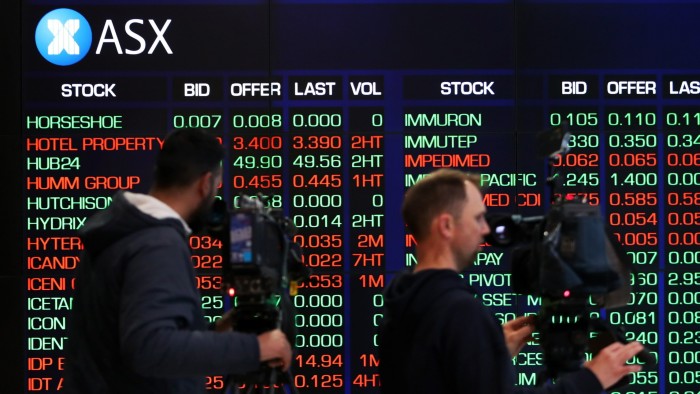Stay informed with free updates
Simply sign up to the Exchange traded funds myFT Digest — delivered directly to your inbox.
Latest news on ETFs
Visit our ETF Hub to find out more and to explore our in-depth data and comparison tools
US-based exchange traded fund provider VanEck is set to launch the first Australian active equities hedge fund-like exchange traded fund on Australia’s largest exchange.
The VanEck Australian Long Short Complex ETF, an active high-conviction, unconstrained Australian equity portfolio, is set to list on the Australian Securities Exchange.
The new active ETF will take tactical long and short positions and will aim to outperform the S&P/ASX 200 over the medium to long term, according to the manager.
The ETF will adopt an active management framework to analyse thousands of real-time data points to identify securities with a probability of producing excess return and those that are more likely to underperform, VanEck said.

This article was previously published by Ignites Asia, a title owned by the FT Group.
The launch of the VanEck Australian Long Short Complex ETF comes as global ETF providers are turning to hedge fund strategies to try to generate higher returns and appeal to investors with new active ETFs.
Earlier this month, BlackRock filed with the US regulator to launch an ETF focused on managed futures, another strategy often used by quantitative hedge funds that take both long and short positions in futures contracts linked to equities, bonds, commodities and currencies.
Arian Neiron, chief executive and managing director of VanEck’s Asia-Pacific business, said the Australian equity market was “littered with inefficiencies to exploit”.
“It is hyper-concentrated, overcrowded and lacks persistent ‘factor’ dominance.”
“With style, sector and size leadership proven to be highly idiosyncratic, this has presented an opportunity to exploit the market’s inefficiencies through a highly active approach in 2025 and beyond,” he added.
Neiron said that “market swings and sector-level dispersion were more pronounced than ever” last year, as shifting global growth expectations, geopolitical tensions and the evolving interest rate environment affected performance.
“This volatility is expected to persist into 2025,” Neiron said, adding that “style rotations and valuation gaps are presenting short-term opportunities in the Australian market that require adaptability that are not supported by traditional active funds but will complement core beta and smart beta approaches”.
Australia’s ETF industry saw net inflows double in 2024, rising to A$30.8bn ($19.1bn) from A$15bn in 2023, according to the Betashares Australian ETF review.
Vanguard was the biggest beneficiary of the continued growth trend as it took in A$9.5bn in net new money last year, representing about 31 per cent of total industry flows.
*Ignites Asia is a news service published by FT Specialist for professionals working in the asset management industry. Trials and subscriptions are available at ignitesasia.com.
https://www.ft.com/content/c5d4454a-beeb-4596-8c0d-b340ea154a88


